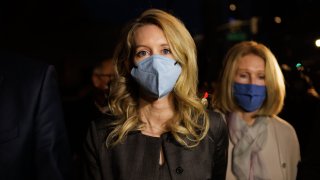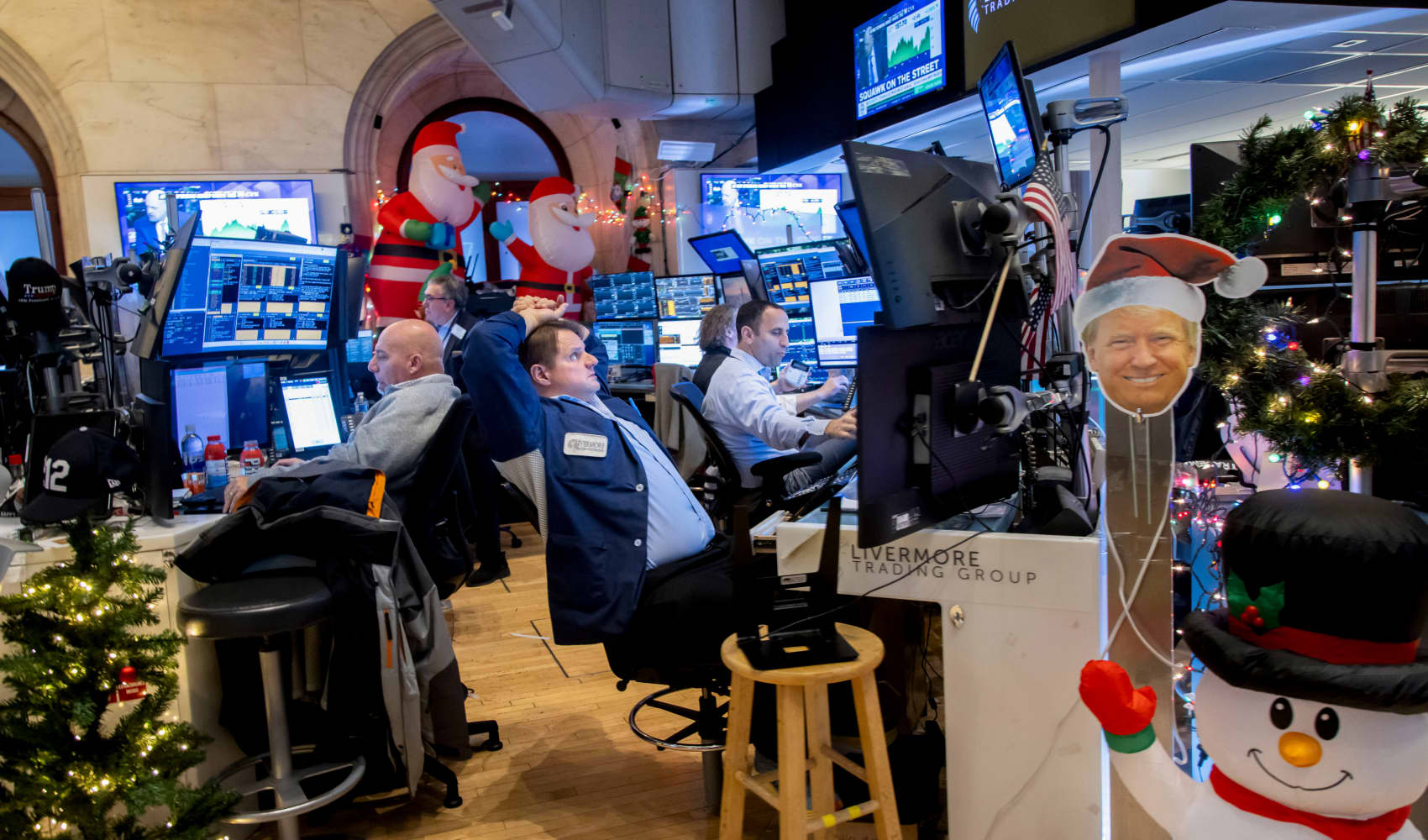
- Holmes sentencing on the four charges she was found guilty of has been proposed for Sept. 12.
- Holmes' release would include a $500,000 bond secured by property.
- The court filing also said the government will dismiss counts 3, 4 and 5 of the indictment in which the jury deadlocked on.
Former Theranos CEO Elizabeth Holmes, who was convicted of federal fraud charges last week, will be placed on a $500,000 bond secured by property and sentenced Sept. 12 under terms proposed in a court filing on Tuesday night.
The court filing also said the government will dismiss counts 3, 4 and 5 of the indictment in which the jury deadlocked on.
The three dropped counts relate to investors Alan Eisenman, Chris Lucas from Black Diamond Ventures and Bryan Tolbert from Hall Group. All three of the investors testified that Holmes misled them about her blood-testing company.
Theranos raised over $945 million from investors over its lifetime.
The proposed stipulation which was filed by the government and attorneys for Holmes, said "the parties agree that a sentencing hearing following Labor Day 2022 would be appropriate in light of ongoing proceedings in a related matter."
That refers to pending fraud charges against former Theranos president and Holmes' Ramesh "Sunny" Balwani, her top executive and boyfriend at the time.
Money Report
The court filing also sets a timeline for both sides to file post-trial motions. U.S. District Court Judge Edward Davila would need to approve the joint motion.
After more than 50 hours of deliberations, Holmes was found guilty of three counts of wire fraud and one count of conspiracy to commit wire fraud relating to lying to investors. The jury of eight men and four women found her not guilty of four charges relating to lying to patients. The jury could not reach a unanimous verdict on three counts relating to investors.
Get a weekly recap of the latest San Francisco Bay Area housing news. >Sign up for NBC Bay Area’s Housing Deconstructed newsletter.
Balwani, who has pleaded not guilty, is facing the same charges in a separate trial that has been delayed until March due to the Covid surge.






